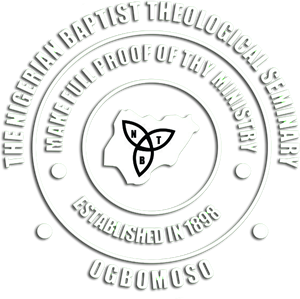Master Of Art and Doctor Of Philosophy in
CHRISTIAN WORSHIP
MASTER OF ARTS IN CHRISTIAN WORSHIP
Purpose
The Online Master’s programme in Christian Worship encourages the spiritual formation and prepares students to minister to the minds and hearts of God’s people. Because of the multi-disciplinary nature of the programme, MA Christian Worship candidates are required to take some modules in systematic theology, Old Testament theology, or New Testament theology.
Objectives
By the end of the programme, students should be able to:
i. Demonstrate competence in worship, theology, education, and musical artistry;
ii. Demonstrate an understanding of various styles of Christian worship as espoused by scholars;
iii. Evaluate worship practices in different denominations for biblical authenticity;
iv. Design life-transforming worship services regarding the liturgical year;
v. Demonstrate analytical skills in conducting research in the field of Christian worship.
DOCTOR OF PHILOSOPHY IN CHRISTIAN WORSHIP
Purpose
The online Doctor of Philosophy in Christian Worship programme is designed to train researchers, teachers, leaders, and ministers in worship. The programme is designed for worship teachers, music ministers, worship leaders, and pastors; modules integrate theological disciplines and biblical studies in worship with an emphasis on music. Students are thus equipped to reflect on worship through music, scripture, history, theology, and cultural analysis.
Objectives
The following are objectives for the program. Hence, upon the completion of work in PhD. Christian Worship, the student would have:
i. Been adequately prepared for teaching and research in institutions of higher learning, which requires the ability to cultivate academic competencies through scholarly study and Christian worship;
ii. Gained expertise in critical thinking in Christian worship through in-depth knowledge of the field;
iii. Acquired ability to apply specialized knowledge to Christian ministry;
iv. Equipped for leadership positions in churches, Christian denominational organizations, and ministries;
v. Demonstrated personal spirituality and ministry in light of the shift from modernity to postmodernity;
vi. Intellectualized worship as a global practice, as it relates to the disciplines of sacred music, theology, and other ministries of the church;
vii. Analysed the cultural text and discerned how biblical faith is communicated within the current post-Christian cultural setting, facilitating quality and biblical worship in the contemporary Church for transformation.
